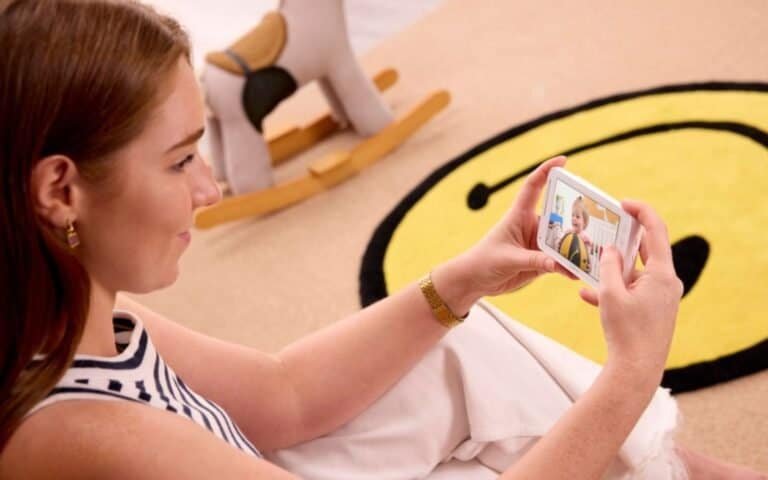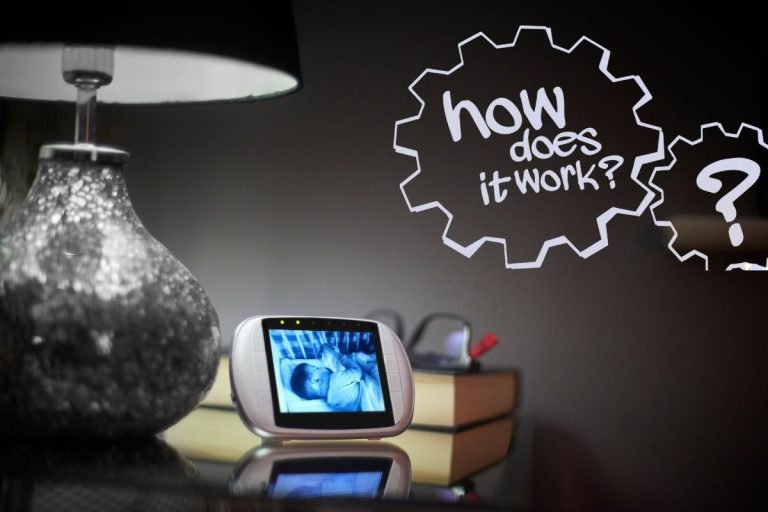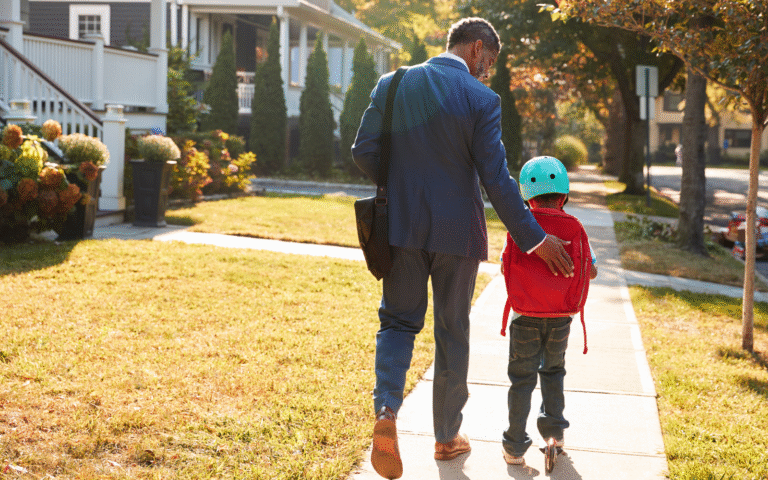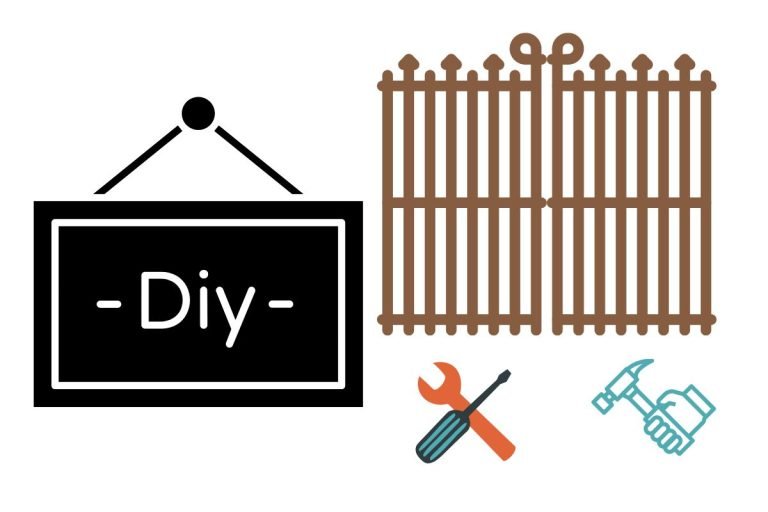Do I Need A Baby Monitor: Must Have Baby Gear for Sleep and Safety in 2025
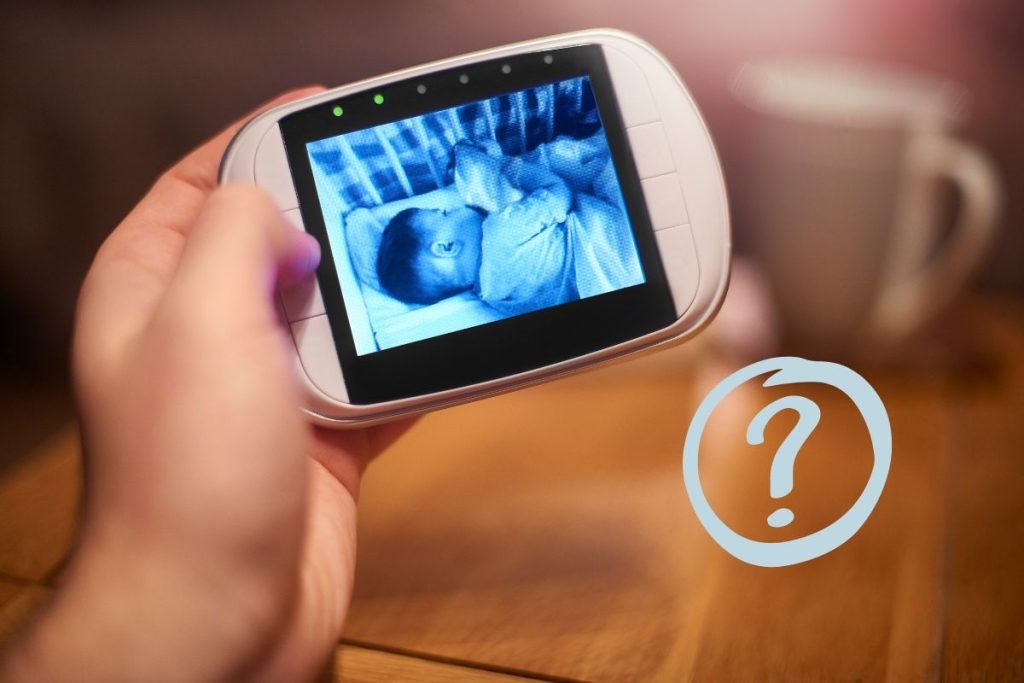
Do I need a baby monitor? Or is it just another item on the ever-expanding baby gear checklist?
Let’s explore baby monitors’ critical role in ensuring your baby’s safety and peace of mind.
Join us as we explore baby monitor types and help you decide.
Whether you’re a first-time parent or experienced, the world of baby monitors is constantly changing, and we’re here to help you navigate it.
Key Takeaway – Do I Need A Baby Monitor
- Baby monitors offer peace of mind for parents by allowing easy check-ins on babies from another room.
- The choice of the right baby monitor depends on factors like budget and needed features such as range, video quality, etc.
- Experts recommend using baby monitors until children are around 2-4 years old, when sleep patterns stabilize and independence increases.
- Video baby monitors are considered safe if placed at least 3 feet away from the baby’s crib and avoid heat sources.
Who Are Baby Monitors Designed For?
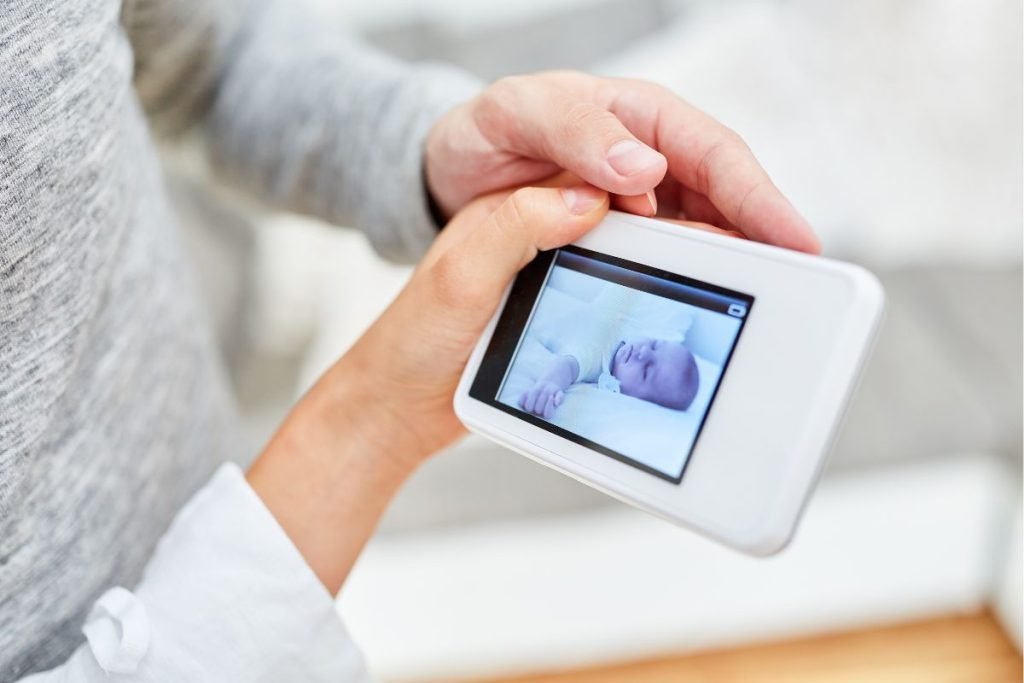
New Parents: Designed with new parents in mind, baby monitors offer a sense of security and connectedness during those early days.
Busy Families: Perfect for families juggling multiple responsibilities, baby monitors become an extra set of eyes and ears for baby sleep.
Safety Concern Families: Using a baby monitor, you can always observe your baby and keep an extra eye on him for his sweet nap. This can help you monitor whether your baby is sleeping or not.
Advantages Of Using A Baby Monitor
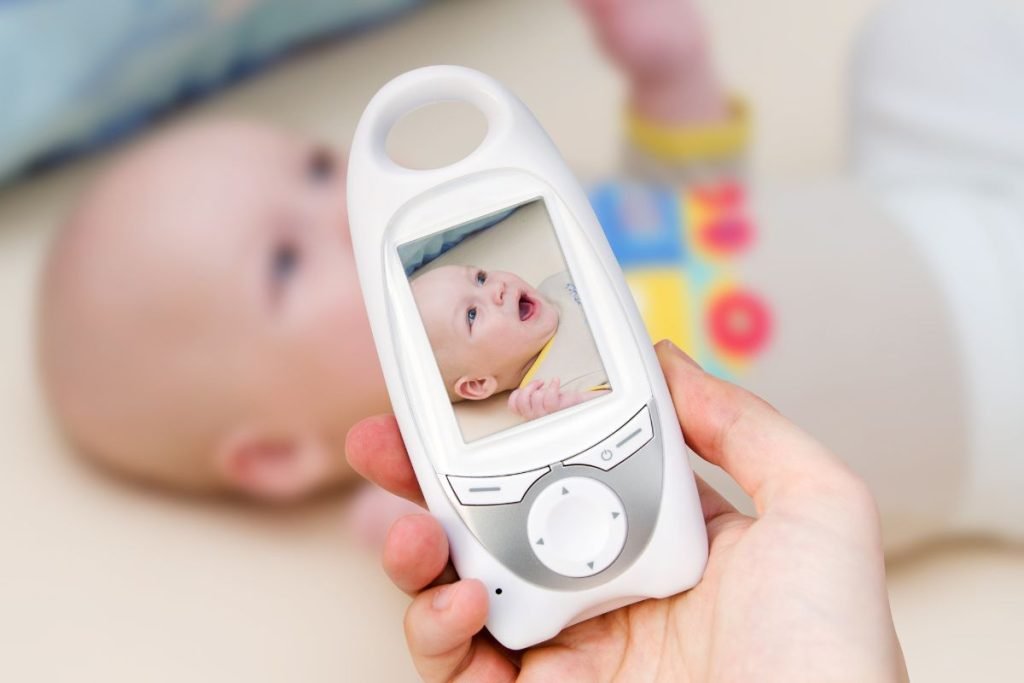
Easily check in on your baby: Experience the ease of keeping in touch with your little one with just a glance at the monitor screen.
Reduce your anxiety: Discover the relief that comes from knowing your baby is safe and sound, even when you’re not in the same room.
Ensure they’re sleeping: A baby monitor allows you to confirm those precious quiet moments and ensure your baby enjoys uninterrupted sleep.
Monitor without the risk of waking: Explore the freedom to keep tabs without tip-toeing into the nursery and risking waking a peacefully sleeping baby.
A great sleep training tool: Learn how baby monitors can play a pivotal role in the sleep training process, making it smoother for you and your baby.
Keep tabs even when you’re not at home: Experience the peace of mind from checking in on your baby from afar, whether at work or enjoying a night out.
Save amazing moments: Capture those adorable and unexpected moments that unfold when you least expect them.
Great for vacations: Baby monitors can be your travel companion, ensuring your child’s safety and peace of mind even when you’re away from home.
Choosing The Right Monitor: Choose The Right Baby Monitor For Better Sleep
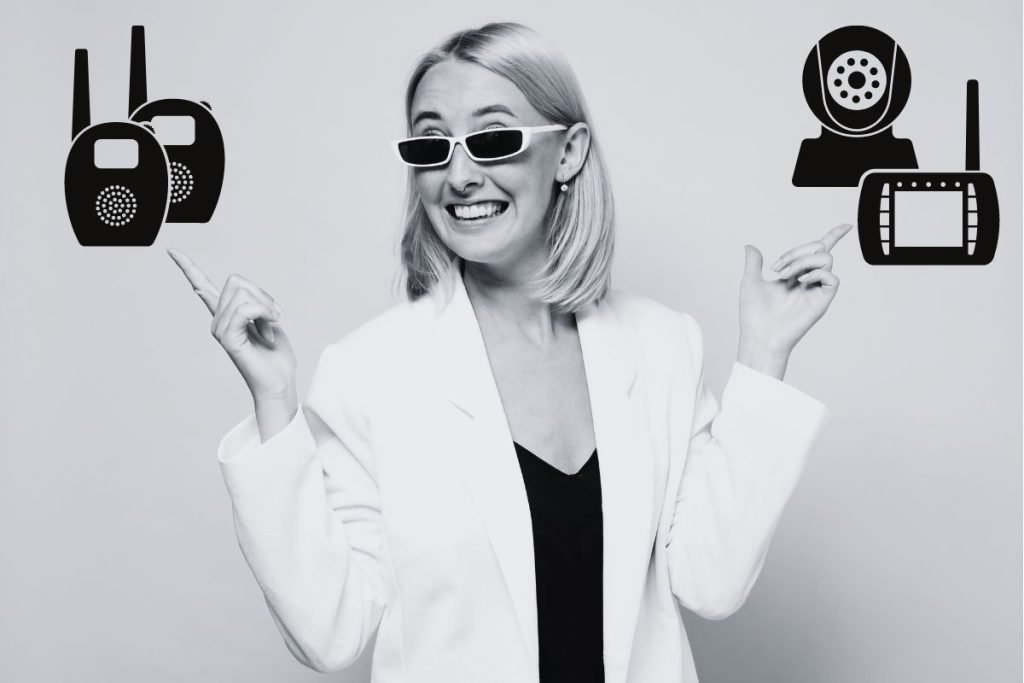
- Consider your needs: Choosing the right monitor may vary per your expectations or situations.
- Budget: Monitors range in price from basic models to feature-packed smart devices.
- Range: Choose a monitor with a range that covers your entire house.
- Safety features: Look for features like night vision and low battery alerts.
- Battery: Ensure your monitor lasts long, especially if your baby sleeps soundly! Rechargeable batteries are a great choice to avoid constant replacements.
- Video Quality: If you choose a video monitor, pick one with a high-resolution camera to see your little one crystal clear, even in the dark.
- Night Vision: To watch your baby during naps and nighttime, choose a monitor with infrared night vision that can see in complete darkness.
- Two-Way Communication: Talk to your baby through the monitor with a two-way communication feature – perfect for soothing and comforting them without leaving your comfy spot.
Types of Baby Monitors
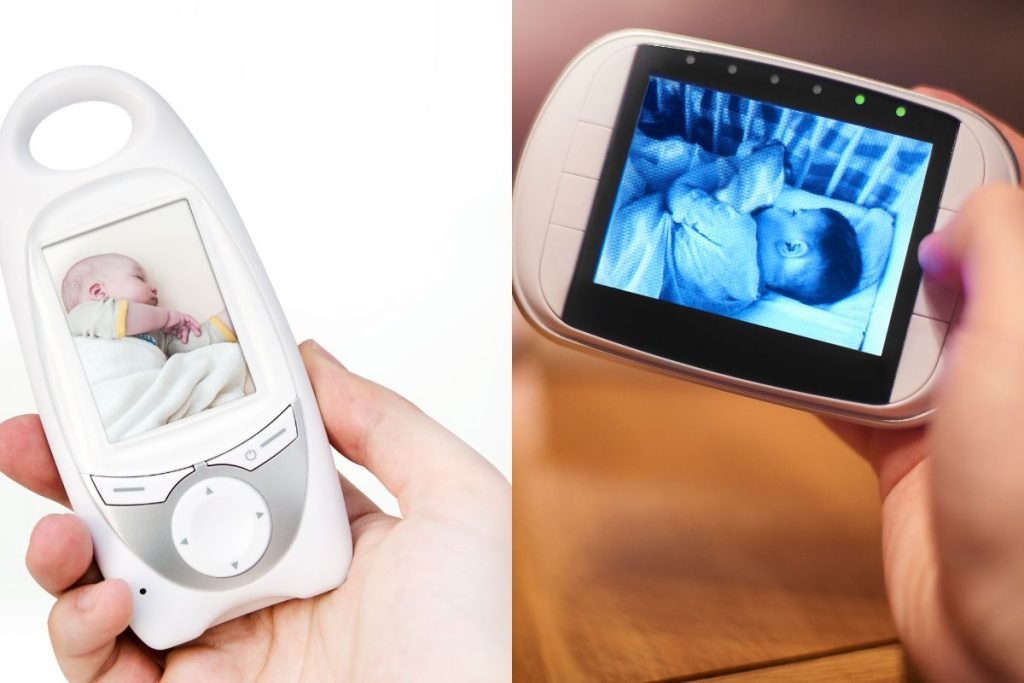
Non-Wi-Fi Baby Monitors
A non-Wi-Fi baby monitor is a traditional baby monitoring device that operates independently of internet connectivity.
Non-Wi-Fi baby monitors are suitable for parents who prioritize simplicity, reliability, and a dedicated system for monitoring their baby without needing internet connectivity.
Learn more about How Non-Wifi Baby Monitor Works to understand its features
Audio Baby Monitors
Audion baby monitors transmit sound only, allowing you to hear your baby’s noises and cries.
Video Baby Monitors
Video baby monitors transmit audio and video, providing a live feed of your baby’s activities.
Movement Monitors
Movement monitors can help to detect the baby’s movement, ensuring they are safe.
Breathing Monitors
Breathing monitors are specifically designed to monitor the baby’s breathing patterns.
Wi-Fi Baby Monitors
A Wi-Fi baby monitor is a modern device that utilizes internet connectivity to transmit audio and video data from the baby’s room to a parent unit or a mobile device.
These monitors offer the convenience of remote access, allowing parents to check on their baby using a smartphone, tablet, or computer from anywhere with an internet connection.
Smart Baby Monitors
Connect to smartphones or tablets, often equipped with additional features.
Wearable Baby Monitors
Devices attached to the baby’s clothing or body monitor vital signs or movements.
Multi-Camera Baby Monitors
Systems that support multiple cameras allow monitoring of different rooms or angles. Choosing between non-Wi-Fi and Wi-Fi baby monitors depends on your preferences and needs.
Non-Wi-Fi monitors are standalone devices that transmit signals within a limited range, while Wi-Fi monitors offer the convenience of remote access and integration with other smart devices.
At What Age Should I Stop Using a Baby Monitor
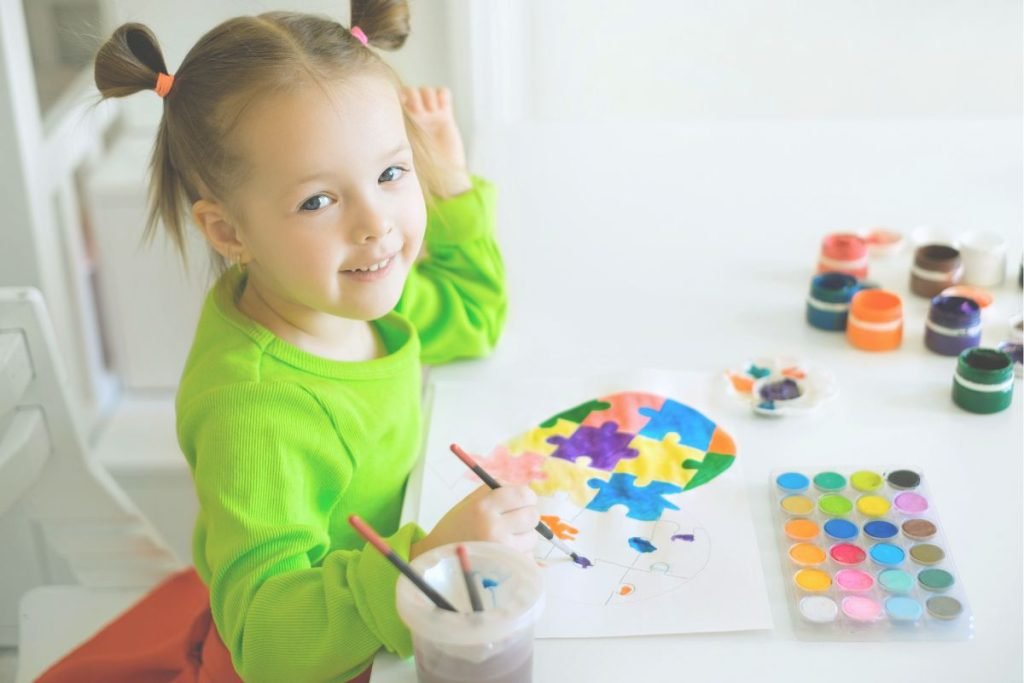
You need to stop using a baby monitor at no specific age. However, most experts recommend using one until your child ages 2 to 4. Here are some factors to consider:
- Growing independence: As your child grows older and becomes more independent, they may desire privacy and find the monitor intrusive.
- Regular sleep patterns: By age 2 or 4, most children have established regular sleep patterns and are less likely to need constant monitoring.
- Promoting independence: Using a monitor can sometimes lead to over-monitoring and hinder your child’s development of independence.
Are Video Baby Monitors Safe?
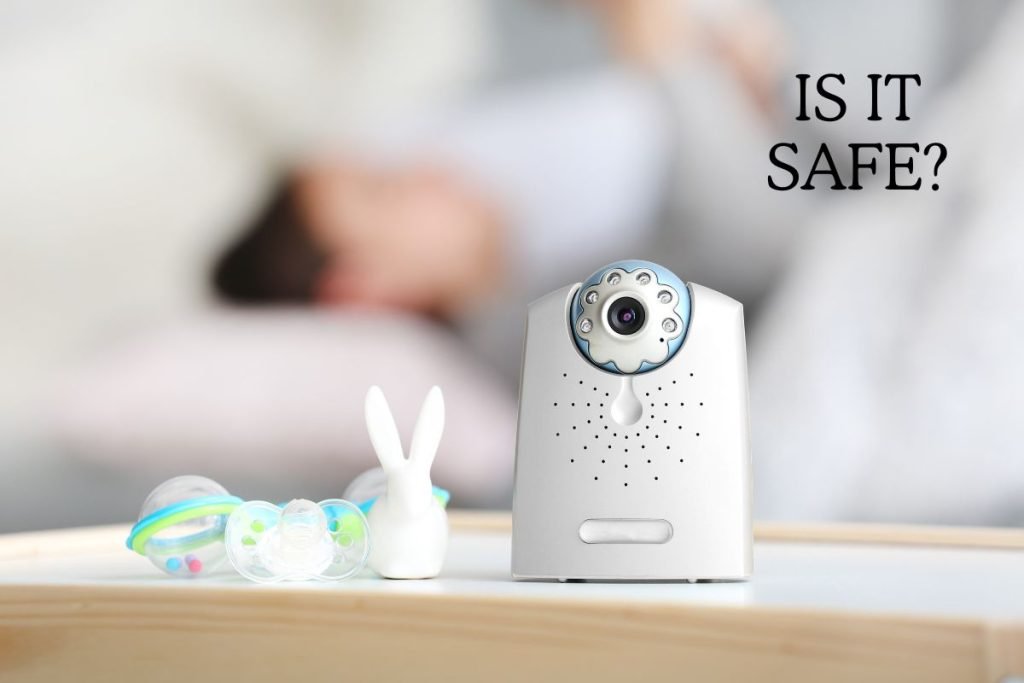
Video monitors are generally considered safe for your baby’s room. However, there are a few things to keep in mind:
Placement: Place the monitor at least 3 feet away from your baby’s crib. This will help to reduce the risk of any potential radiation exposure.
Temperature: Avoid placing the monitor in direct sunlight or near heat sources, which can overheat the device.
Signal strength: Ensure the monitor has a strong signal to avoid interference and ensure you can hear and see your baby.
Model: Choose a reputable brand with a good safety record.
How To Decide If You Need A Baby Monitor

Considering Your Child’s Age: Take a moment to assess your child’s age and whether you need a baby monitor that aligns with their current needs.
Personal Experience: Share my journey in deciding when and why using a baby monitor, either an audio monitor or a video baby monitor, became an essential tool for our family.
Summary
The guide aims to empower you to make an informed decision. Whether you decide to use, stop, or continue using a baby monitor, the essential guide lays out the key factors.
Remember, it’s not just about the monitor; it’s about ensuring your baby’s safety and peace of mind throughout the parenting journey.
Consider the guide as a valuable tool in your parenting toolkit. As you navigate the world of baby monitors, may it provide clarity and confidence in your decision-making process. Happy parenting!
Frequently Asked Questions
Do I Need a Baby Monitor for Newborn?
- Recommended but not mandatory.
- Provides peace of mind during sleep.
- It is especially useful if the baby sleeps in a different room.
Is It Important to Have a Baby Monitor?
- Depends on personal preference.
- Useful for monitoring baby’s sleep and well-being.
- Adds convenience and reassurance.
How Does a Baby Monitor Work at Night?
- Uses audio/visual technology to monitor baby.
- Night vision for low-light conditions.
- Alerts for sounds or movements.
What Age Do I No Longer Need a Baby Monitor?
- Personal decisions are based on the comfort of the child and the parent.
- Many parents stop around age 1 or 2.
- Transition depends on the child’s sleep habits.
Can I Use My Phone as a Baby Monitor?
- Yes, with the right app.
- Turn your phone into a monitor.
- Check for features like video, sound, and alerts.
